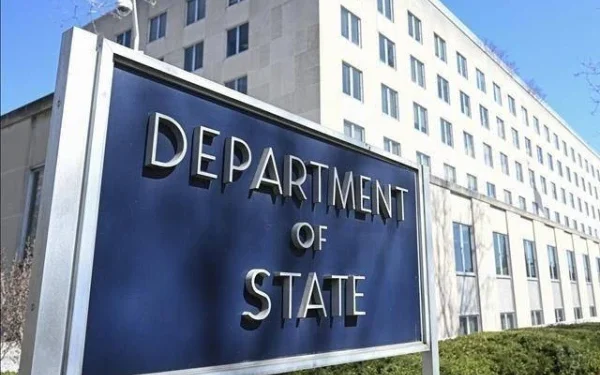Washington, D.C. – Former U.S. President Donald Trump has announced the termination of legal protections for more than 500,000 immigrants, directing them to leave the country by April 24. The decision primarily impacts citizens from Cuba, Haiti, Nicaragua, and Venezuela who entered the United States under an immigration scheme implemented during the administration of President Joe Biden.
The announcement marks one of the most significant immigration policy shifts under Trump, reinforcing his stance on stricter border control and reduced legal pathways for migrants from Latin American countries.
Details of the Deportation Order
The deportation decision, which was issued via a presidential order on Tuesday, will officially take effect after publication in the Federal Register. Affected individuals will have 30 days to either secure an alternative immigration status or leave the United States. Failure to comply may result in forced deportation proceedings.
According to U.S. media reports, the decision is expected to be the largest deportation operation targeting immigrants from Latin America, specifically those who had been granted temporary status under Biden’s immigration policy.
Who is Affected?
The individuals impacted by this decision are mostly immigrants from Cuba, Haiti, Nicaragua, and Venezuela who were allowed entry under the CHNV Program. Established in January 2023, the program permitted up to 30,000 individuals from these four countries to enter the United States each month and remain for a period of two years. However, with the Trump administration’s new directive, these immigrants are now required to leave the country unless they can obtain another legal status.
The program was initially designed to offer temporary relief and an orderly pathway for people escaping economic crises, political turmoil, and violence in their home countries. The sudden revocation of their status has put thousands of families in a state of uncertainty.
Legal Implications and Immigration Advocacy Response
Following the announcement, the immigration rights organization Welcome US urged affected individuals to seek immediate legal counsel. The organization emphasized that there might be alternative pathways available, such as asylum claims or sponsorship opportunities, but that those options depend on individual circumstances.
“We strongly encourage all those affected to consult an immigration attorney as soon as possible,” a spokesperson for Welcome US said. “It is critical that people explore their legal options before the deadline.”
The decision has already sparked widespread criticism from immigration advocates, human rights groups, and lawmakers who view the move as a harsh and politically motivated action that disrupts lives and threatens family unity.
Political and Social Repercussions
Trump’s decision to expel 500,000 immigrants is widely seen as part of his broader strategy to appeal to conservative voters ahead of the upcoming presidential elections. Immigration has been a key issue in Trump’s campaign rhetoric, and this latest move aligns with his previous promises to tighten immigration laws and reduce the number of undocumented and temporary-status migrants in the U.S.
However, the decision is expected to create significant challenges for immigration enforcement agencies, which will have to process and execute a large-scale deportation plan. Additionally, the expulsion of such a substantial number of workers could impact sectors like agriculture, construction, and service industries that rely heavily on immigrant labor.
Several human rights organizations have condemned the move, arguing that many of these immigrants fled dangerous conditions in their home countries and may face severe hardship upon deportation.
Reaction from the Affected Countries
Governments of the affected nations have also expressed concern over the mass deportation order. Officials in Venezuela and Haiti have particularly criticized the decision, stating that their countries are currently facing extreme economic and political instability, making it unsafe for deported citizens to return.
The Cuban government has yet to issue an official statement, but past deportation waves have strained U.S.-Cuba relations. Nicaragua, under the leadership of President Daniel Ortega, has had a turbulent relationship with the United States, and the deportation order is expected to further complicate diplomatic ties.
What Happens Next?
The coming weeks will be crucial for those affected as they decide their next course of action. Many immigrants are expected to seek legal alternatives to remain in the U.S., while others may be forced to return to their home countries despite potential dangers.
The Biden administration has yet to issue a response to Trump’s directive, but immigration policy is expected to remain a central issue in the upcoming presidential race. Meanwhile, legal challenges against the deportation order may emerge in federal courts as advocacy groups push back against the decision.
Conclusion
The Trump administration’s latest immigration decision marks a significant and controversial policy shift, affecting over half a million people. With the deadline of April 24 looming, the fate of thousands remains uncertain as they scramble to secure their legal status or prepare for potential deportation. The political and humanitarian implications of this decision will continue to unfold in the coming months, shaping the broader debate on immigration policies in the United States.

























